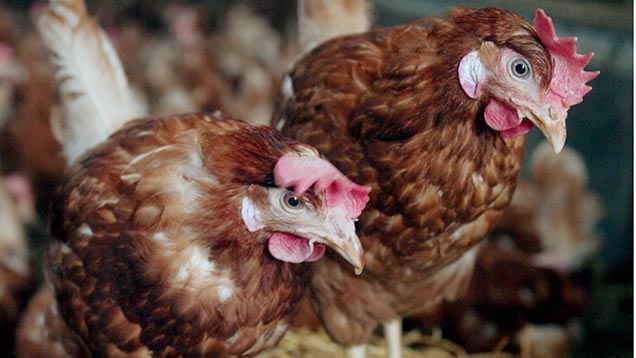Organic poultryfeed rule changes rejected by ministers
 ©Rex Features
©Rex Features EU agriculture ministers have given a firm rebuttal to commission plans to tighten up on organic standards, which could signal the end of the current derogation allowing some conventional feed in organic rations.
Last July the standing committee on organic farming agreed to extend the 5% allowance for non-organic feed in monogastric diets to December 2017.
It also allowed for the use of non-organic pullets in organic laying systems for the next three years.
See also: Organic feed and pullets win derogation extension
But a wider commission proposal on organic standards seeks to end all such derogations once they have run their course. It also calls for organic holdings to be 100% organic, with mixed organic/conventional operations banned.
And it suggests limiting feed for organic livestock to raw materials produced within the same region – although “region” has yet to be defined.
Another concern is in relation to debudding organic cattle, which would be termed a “mutilation” under the commission proposal, and effectively banned.
Brussels debate
But in an open debate at this week’s farm council in Brussels, a clear majority of ministers challenged these proposals, insisting they would undermine the economic viability of many organic farms.
Calls to pull the proposals altogether were made by the so-called Visegrad group of Czech Republic, Hungary, Poland and Slovakia, joined by ministers from Bulgaria, Romania and Slovenia.
Swedish minister Sven-Erik Bucht also warned the proposals would cause many producers to give up, while the Slovakian minister said the pace of change was too swift.
Despite the opposition, agriculture commissioner Phil Hogan said he wished to progress the plan, albeit with some changes, in order to “protect the reputation of organic products and consumer confidence”.
A spokeswoman for the NFU in Brussels said the Italian presidency was still keen to get an agreement in December, but this seemed highly optimistic and next summer seemed more realistic, once the European parliament has had its say.
